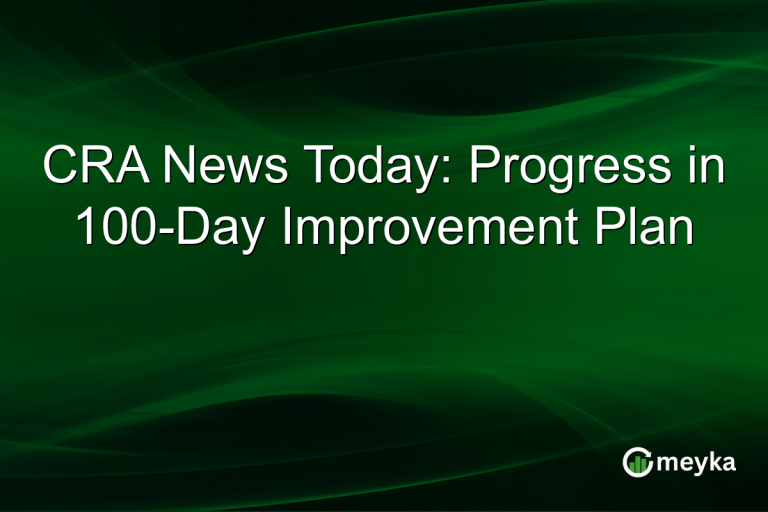US Mortgage Market News Today: Rates Hold Steady Amid Inflation Data
Recent developments in the US mortgage market reveal that interest rates are holding steady, influenced by stable inflation data from the Consumer Price Index (CPI) report. As consumers watch the market for signs of change, this stability offers a mixed bag for both new and refinancing applications. Although there is a slight dip in overall mortgage application activity, stronger refinancing demand is bringing some equilibrium to the market under current economic conditions.
Understanding US Mortgage Rates
US mortgage rates are a crucial component of the housing market, affecting the affordability and accessibility of home loans. Recent data from the CPI report indicates a stabilizing inflation rate, which is crucial in keeping these interest rates steady. Typically, when inflation is low, the Federal Reserve is less likely to increase rates, benefiting prospective homebuyers.
Currently, the average fixed rate for a 30-year mortgage is hovering around 7.5%, according to Mortgage News Daily. This stability is crucial for homeowners planning to refinance, as it allows them to lock in favorable terms without the fear of fluctuating rates. However, persistent inflation concerns could alter this trend in the future.
Inflation’s Impact on Mortgages
Inflation impact on mortgages is significant as it influences the broader economic environment and borrowing costs. The CPI report shows a stable inflation rate, easing concerns of rapid interest rate hikes. This is crucial for borrowers, as stable rates help maintain affordability.
When inflation stabilizes, lenders face less pressure to raise interest rates, which can otherwise increase the cost of borrowing. This relationship underscores why the current stable inflation contributes to steady mortgage rates. These factors collectively impact housing market trends, influencing both supply and demand dynamics.
Trends in Housing Market and Refinancing
The housing market trends reveal a slight decline in new mortgage applications due to steady but high interest rates. However, a rise in refinancing activity is noticeable as homeowners seek to capitalize on favorable loan terms. With existing rates, those seeking to refinance can potentially save more in the long term by securing lower monthly payments.
As forhome loan interest, this demand shift suggests that the current rate environment is pushing more existing homeowners to refinance rather than purchase new homes. Industry analysts view this as a strategic move amid economic uncertainty, providing a buffer against potential future rate hikes.
Economic Context and Investor Sentiment
The broader economic context provides insights into current investor sentiment. As inflation impacts mortgages, investors remain cautious, observing inflation data for any signs of economic turbulence. This cautious sentiment is reflected in recent market analyses on X and Reddit, where discussions focus on potential shifts in Fed policy.
Investors are closely watching developments, understanding that any significant changes in inflation could directly affect interest rates. For now, the steadiness offers a degree of certainty, allowing stakeholders to plan with more confidence. Nevertheless, monitoring these trends remains crucial as the market adapts to economic indicators.
Final Thoughts
In conclusion, the current steadiness of US mortgage rates amid stable inflation data offers a moment of relief for both new and refinancing borrowers. This environment supports strategic refinancing moves, as many homeowners seek to lock in favorable terms amid high but steady rates. The housing market trends, while showing a slight dip in application activity, suggest resilience with a noteworthy rise in refinancing interest.
Overall, as inflation impacts mortgages and market conditions stay in flux, homeowners and investors alike must remain vigilant. Working with adept financial tools, such as those provided by platforms like Meyka, can help navigate these changes with real-time insights and predictive analytics. Staying informed will be key to making sound financial decisions as the economic landscape evolves.
FAQs
Inflation affects US mortgage rates by influencing borrowing costs. High inflation often leads to higher rates as lenders seek compensation for decreased purchasing power. Currently, stabilizing inflation helps keep rates steady, benefiting borrowers by maintaining affordability.
Refinancing applications are rising as homeowners lock in favorable terms amid high but steady interest rates. Many see this as a chance to reduce monthly payments long-term. Meanwhile, new mortgage applications drop due to these high rates affecting affordability for new buyers.
The Federal Reserve influences mortgage rates through monetary policy, mainly by setting the federal funds rate. When the Fed raises rates to combat inflation, mortgage rates often increase. Currently, with stable inflation, the Fed maintains rates, keeping mortgage rates steady.
Disclaimer:
This is for information only, not financial advice. Always do your research.






